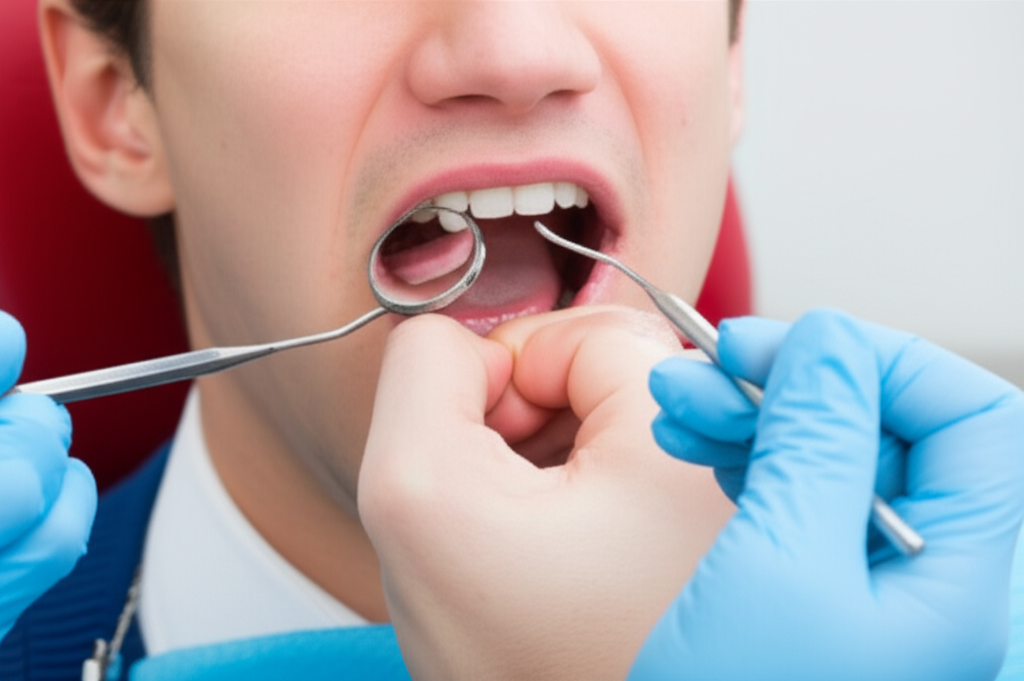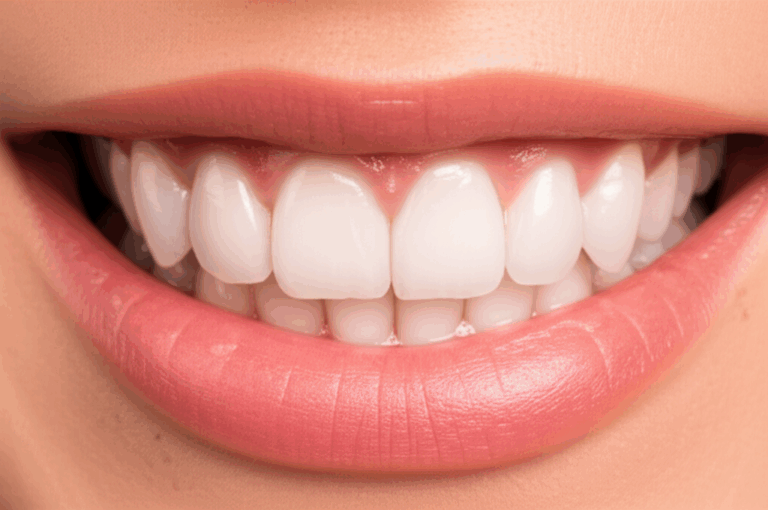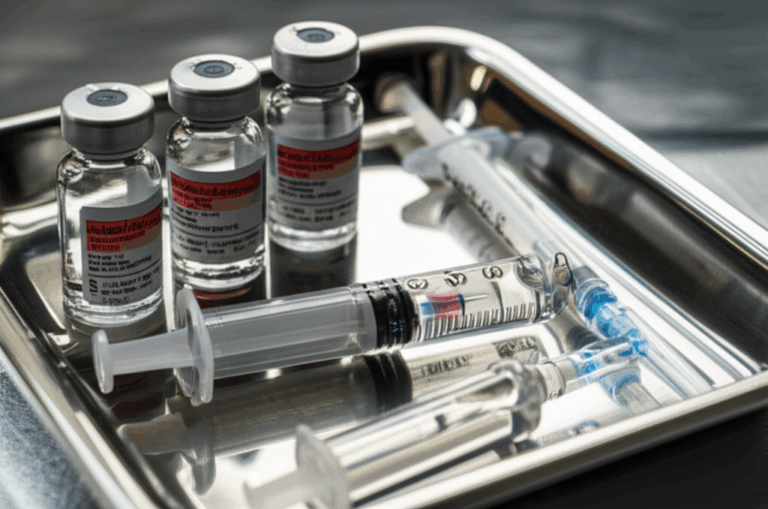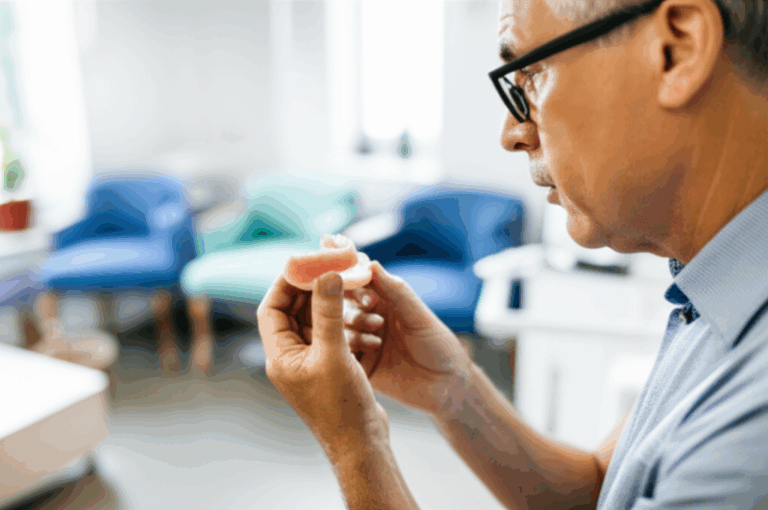
How to Control Gag Reflex at the Dentist: 15 Simple Strategies for an Easier Visit
That familiar panic when a dental tool moves toward the back of your mouth—the urge to gag, tense up, or even move away. Sound familiar? If you have a sensitive gag reflex, going to the dentist can be really hard. You might feel like you’re a “difficult” patient or even skip visits. Here’s the truth: You’re not alone, and there are ways to help. This easy guide explains why gagging happens, tips you can try at home, and what dentists can do in the office. We’ll go through everything in simple words, with friendly advice, so you can finally feel less scared about the dentist’s chair.
In This Article
- Understanding Your Gag Reflex: Why Does It Happen?
- At-Home Tips: What To Do Before & During Your Visit
- In-Office Help: How Your Dentist Can Make It Easier
- Checklist for Gag Reflex Sufferers
- Frequently Asked Questions
- Final Tips: Take Charge of Your Dental Comfort
Understanding Your Gag Reflex: Why Does It Happen?
The Simple Question:
“Why do I gag so easily at the dentist? Is something wrong with me?”
Here’s the first thing to know: The gag reflex (the pharyngeal reflex) is normal. Everyone has it, but some people have it more than others. In fact, up to 10-15% of dental patients have a strong gag reflex. If that’s you, you’re not alone.
Why Does It Happen?
Your gag reflex is your body’s way to keep things out of your airway. There’s a spot at the back of your throat—like a guard on duty. When something (a dental mirror, tray, or even extra saliva) touches your soft palate, back of the tongue, or throat, your body reacts with a cough or gag to stop it.
But sometimes, this guard reacts too easily. Worry, fear of the dentist, some smells, tastes, and even lying flat can make it worse. If you tense up when your dentist just mentions X-rays, that’s real—the mind matters here too.
Things That Can Make It Happen:
- Dental tools touching the soft palate or back of tongue
- Extra spit, water, or strong flavors
- Feeling anxious or scared
- Lying all the way back with your mouth open for a long time
- Just worrying about gagging
Who Has This Problem?
People with a strong gag reflex may also:
- Gag when brushing their teeth (especially the back)
- Avoid some foods because of texture
- Get even more worried because they expect to gag
This turns into a circle: Worrying about gagging makes your body react even more.
At-Home Tips: What To Do Before & During Your Visit
Here’s the good news: You can teach your mind and body to calm down. These are real tips dentists suggest, not myths.
Relaxation and Mind Tips
1. Deep Breathing
Slow, steady breathing helps you feel calmer and can distract from gagging. Try this before and during your visit:
- Breathe in through your nose for a count of 4
- Hold for 4
- Breathe out slowly through your mouth for 6
- Repeat until you feel more relaxed
2. Distraction
Bring headphones and listen to music, a podcast, or a meditation app. Or just stare at a spot on the ceiling and focus on it. Wiggling your toes also “distracts” your brain and helps sometimes.
3. Tense and Relax Muscles
Start at your toes and tense, then relax, each muscle group up to your face. This will help your whole body and throat relax.
4. Wrist Pressure Point (P6 Spot)
With your thumb, press on the spot three fingers below the crease of your wrist (called the P6 point). Rub gently for a minute. Many people find it helps reduce gagging.
5. Practice with Toothbrush
A bit like training for sports—but for your throat! Every day, gently touch a toothbrush to the back of your tongue. The first time, you may gag. Next time, less. Over a few weeks, your body often learns not to react as much. Go slow and gentle.
Quick Tricks for Now
6. Salt on Your Tongue
Put a pinch of salt on the tip of your tongue before a dental procedure. Many people find this lessens the gag reflex right away.
7. Hold an Ice Chip
Put a small piece of ice on your tongue just before your dentist starts. The cold numbs things a bit, making gagging less likely. Don’t bite it, just let it melt.
8. Adjust Your Head
Try keeping your chin slightly up, not tucked down. For some, turning slightly to one side helps too. Tiny changes in head position can help.
Good Everyday Habits
- Brush the back of your tongue gently every day
- Don’t eat a big meal or drink alcohol before your visit
- Drink some water, but not too much right before you go
Try these out and build your own “toolkit” for easier dental visits.
In-Office Help: How Your Dentist Can Make It Easier
If you need more help, don’t worry—modern dentists have lots of ways to make things better.
Talk to Your Dental Team
9. Tell Your Dentist or Hygienist
At the start of each appointment, let your dental care team know about your gag reflex. Good dental workers see this all the time. They want to help and can change what they do for you.
Don’t feel bad or worry about being a “problem patient.” By saying something early, you help everyone.
10. Set a Stop Signal
Having control helps. Make a hand signal—like raising your left hand—if you want a break. Make this clear before any work starts. Knowing you can stop something lowers your worry and, in turn, can help the gagging.
What Dentists Can Do
11. Numbing Gels or Sprays
Dentists can put numbing spray or gel on your soft palate or back of your throat. This numbs things for several minutes, so impressions, X-rays, and cleanings are much easier.
12. Dental Dam or Better Suction
A dental dam covers parts of your mouth to keep tools and spit away from your throat. High-powered suction also keeps water and bits from building up and making you gag.
13. Your Position Matters
Lying all the way flat makes gagging worse for many. Tell your dentist if you want the chair more upright, or prefer to lean slightly to one side.
14. Digital Impressions
If old “goo” trays make you gag, ask if your dentist uses digital impressions. A wand quickly takes pictures of your teeth—no goo, less gagging.
15. Sedation Options
For severe cases, dentists can offer:
- Laughing Gas (Nitrous Oxide)
You breathe it in. It helps you relax and dulls the gag reflex. You’ll still be awake.
- Sedative Pills
Medicines like Valium or Ativan help you feel calm (you’ll need a ride home after).
- IV Sedation or General Anesthesia
For big procedures or very afraid patients, you can sleep through the dental work.
Your dentist will help decide what’s safe and best for you.
If Anxiety Is a Big Part
You’re not “weak” if you gag because you’re scared. Many dentists work with therapists for:
- Cognitive Behavioral Therapy (thinking and behavior training)
- Guided Hypnosis
- Relaxation and Calming Training
These help both your mind and your mouth work better together.
Checklist for Gag Reflex Sufferers
Planning ahead makes things easier. Try this before your next visit:
- Pick a caring dentist: Look for reviews about comfortable visits, anxiety help, or help with gagging. Digital offices often have more helpful options.
- Book morning appointments: You’ll be less tired and less full.
- Don’t eat a big meal, drink, or have much caffeine: These can make things worse.
- Bring comfort items: Your favorite music, a small stress ball, or calming things can help.
- Do some deep breaths before you go in: Get there a few minutes early and try two rounds of slow breathing.
- Remember to speak up: Be honest! Don’t apologize—just share your worries.
- If you get medication or sedation, plan for a ride home.
Frequently Asked Questions
Q: Can I really get better or “train” my gag reflex?
A: Yes! While some people always feel a little sensitive, home training (like gentle brushing on the back of your tongue), good experiences, and talking openly with your dentist often make things a lot better.
Q: Will my dentist be upset if I gag?
A: No. Good dentists see gag reflex as a challenge, not something to be mad about. They have many tricks. If you ever feel shamed, it may be time to find a different dentist.
Q: Are there quick home tricks I can try if I feel a gag coming on?
A: Yes! Try salt on your tongue or an ice chip—these often help quickly, especially during X-rays.
Q: What if my gag reflex gets worse?
A: Sometimes bad experiences or more worry make it worse. Talk to your dentist and maybe a mental health worker. Learning to relax and getting extra support can really help. For more info and tips, read this dental practical guide.
Q: Does digital dental technology help?
A: Yes—things like digital impressions, easy scanning wands, and even using VR to distract you can really help people with a strong gag reflex.
Q: Is gag reflex connected to being scared of the dentist?
A: Yes. The two often go together, and each can make the other worse. Handling both physical and mental parts is the best way forward.
Final Tips: Take Charge of Your Dental Comfort
Let’s remember:
- Your gag reflex is normal, not a fault or failure.
- Practice and simple calming tricks can really help before and during a visit.
- Talk openly with your dental team—they want to help!
- Dentists have many ways and modern tools (from numbing sprays to digital scanning) to help sensitive patients.
- If things are really bad, ask about sedation or therapy.
- Regular dental care is good for you—don’t let worry keep you away.
Here’s a Short Checklist:
- Practice deep breathing and simple distractions before appointments.
- Always tell your dentist about your gag reflex before anything starts.
- Try the salt or ice tricks next time you feel close to gagging.
- Ask about digital tools or numbing if a certain procedure worries you.
- If this is a big, ongoing problem, look for a dentist who cares about anxiety and comfort.
You deserve a comfortable dental visit. This is your mouth—you get to ask for what you need!
Additional Resources
- Want to learn about advanced materials or how modern labs help patients? See how a crown and bridge lab uses digital tech for comfort and quality.
- For even more friendly info, check out our patient dental resource.
For more easy tips, keep browsing our blog or ask your dentist directly. Taking one small step for comfort is a win every time.
Reviewed by Dr. Alex Smith, DDS. Updated for 2024.








